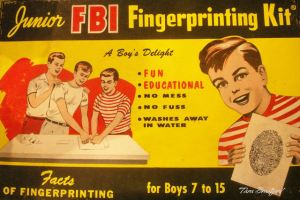In Mark Twain’s Puddn’Head Wilson, there are a lot of thought-provoking ideas about racial identity. Early in the novel, we are introduced to the idea that family history and racial identity are paramount concerns among the families of Dawson’s Landing. The elite of the town are descendants of FFV’s (First Families of Virginia), and they cling to this title tenaciously. When confronted with the cowardice of Tom, the Judge Driscoll actually faints away on the prospect that a man with FFV blood could shrink from a duel.
The slaves seem to equally cling to their histories, and accept that their standing in society will never change because of their blood. Roxy is the only one that intentionally pushes the boundaries in this regard. Even though she performs the fateful switch to save her son, she never assumes the white identity despite her physical appearance, “She was of majestic form and stature, her attitudes were imposing and statuesque, and her gestures and movements distinguished by a noble and stately grace. Her complexion was very fair, with the rosy glow of vigorous health in her cheeks…” Even after being freed, Roxy chooses to serve as a servant aboard a steamer rather than live her life as a free white woman.
We see more glimpses of this seemingly inescapable bondage of blood once Tom discovers he is really a slave. It is repeatedly noted that he, at least temporarily, becomes meek and afraid to spend time with whites as equals. That he moves from their way on the street; this behavior attributed to his Negro blood. Tom even exclaims, “Why were niggers and whites made? What crime did the uncreated first nigger commit that the curse of birth was decreed for him? And why is this awful difference made between white and black? . . . How hard the nigger’s fate seems, this morning! — yet until last night such a thought never entered my head.”
This question seems to be at the center of the novel, but I don’t believe it is ever really answered. Everyone places their heritage on an unassailable platform, and assumes that it can never be moved. Tom laments the designation of the black man as the lesser, but seems to accept it rather than dispose of the false racial designation.
The situation is further clouded by the fact that even though Tom grew up as a gentleman, he sinks to base behavior of gambling, selling his own mother into slavery “down the river,” and eventual murder. But is Twain saying this awful behavior is due to his blood, or due to his indulgent childhood? If Tom were raised as Chambers, would he have turned out as he did? Hard to say exactly what Twain was shooting for here. If only fingerprints could reveal motivations as easily as they do murderers!
